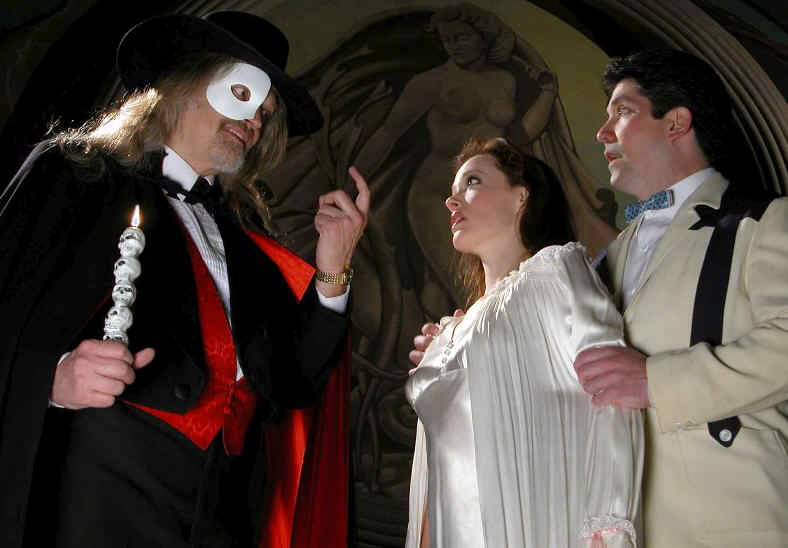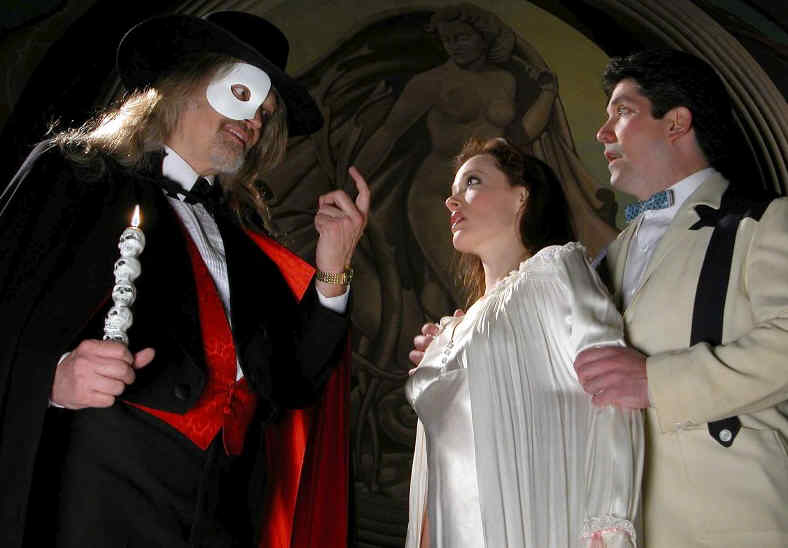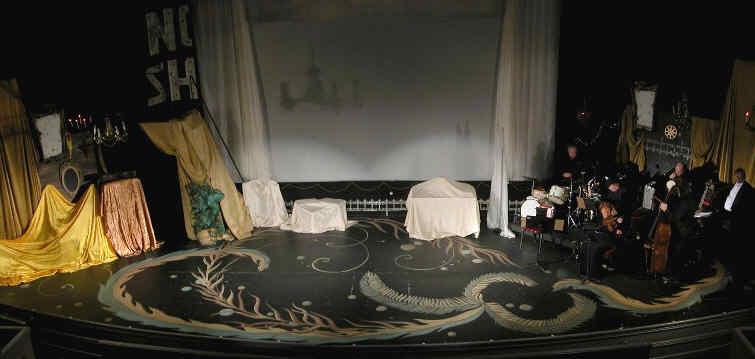Letters from a Writer: Blood at the Box Office
Jean Sramek writes about the problem of huge crowds of people attending your show.



There were fights at the box office. Blood was nearly shed. Patrons of the arts shouted epithets. They whined and they sulked. Worst of all, they dropped names. I handled it all with aplomb, except for a couple of five-minute intervals when I had to shout back. Once, I feared for my physical safety. Many people offered to buy me liquor drinks after witnessing my (mostly) verbal combat with people on the waiting list.
It was the most glorious thing.
In my nightmares, there is blood and mayhem at the Colder By The Lake Comedy Theatre box office because the show is bad and members of the audience are demanding their money back; alternately, the show is good, but I have done a piss-poor job of promoting it, the actors onstage outnumber the people in the audience and I will not be able to pay anyone and the nice people at the arts council and the community foundation will demand their grant money back. These things have never been true (so far). We do good work, and Colder has a stellar reputation. We sell tickets. When are we going to learn?
We sold out on opening night (this never happens) and tickets to Phantom of the NorShor quickly became a hot commodity. An enterprising person could have made a tidy profit, scalping tickets on the street; what prevented this from happening is that all such enterprising audience members wanted to see the show, too. That, and “the street” outside of the NorShor Theater is pretty skanky.
Like complete dumbasses, we didn’t believe in our own art. We scheduled six performances in a 235-seat house. Eight would have been better; ten would have been ideal. “Leave them wanting more,” we said, “it’s better to turn people away and have full houses than to have empty seats.” We were cautious—perhaps too cautious. (Supply and demand. Diminishing returns. And stuff like that. What are we, business majors?) For all the goofy, without-a-net theatrical things we try on the stage, we were oddly reluctant to take the risk of filling those seats a few more times.
It went like this on opening night:
PATRON: I’m so excited to see this production!
US: Thank you.
PATRON: Your last opera was so good! I know this one will be just as good!
US: Why, thank you. That will be $36, please.
PATRON: So, do you think you’re going to be held over?
US: But—but—but—no one’s even seen the show yet.
PATRON: Nonsense! Everyone I know wants tickets!
US (ASIDE): Oh, crap. We did it again.
By the second weekend, the box office chatter was not as cheery. It was ugly. Like a pack of sugared-up middle-schoolers, people on the waiting list hovered around me and my clipboard and my precious stash of unclaimed reserved tickets, wheedling and sniping and second-guessing. Our conductor chatted with some friends waiting in line for tickets; when they were called, a man sneered, “You let THEM in ahead of us just because they know the MAESTRO!” Another woman, unwilling to accept my explanations that, no, we couldn’t “just put some extra chairs in the aisles” finally lost it; she yelled “You’re not being FAIR!” and her friend patted my shoulder patronizingly and said, “I know that selling tickets is high-stress, but you’re just not doing a very good job.” (It was as close as I’ve ever come to saying “DO YOU KNOW WHO I AM?”). The idiot who currently manages the NorShor walked the waiting line, handing out comp tickets to his next poorly-attended event—tickets that hapless people mistook for tickets to Phantom of the NorShor; we had to send ushers sprinting to block their paths to the theater.
The house manager and director shouted updates about how many seats remained empty at five minutes before curtain; Night of the Living Waiting Line heard the phrase “empty seats” and howled, demanding entrance. Coerced by my fellow artists and afraid of the angry patrons, I did the unthinkable: I re-sold seats that had already been picked up and paid for, but were empty at 7:59 pm. This is very, very bad and no one should ever do it unless one is a major airline. Sure enough, at 8:15, an extremely late party of eight showed up, tickets in hand, and we (and when I say “we,” I mean “I”) had to tell them that we re-sold their tickets. I also had to explain, nicely, that the theatre is different from a movie and that we could not have let them in until a scene change blackout at approximately 8:40. They got their money back. They were mad. The people to whom we had re-sold their tickets were also, I suspect, still mad. Instead of eight people being mad, sixteen people were mad. It doesn’t matter whether they were right.
The aforementioned offers of liquor drinks were accepted. The next evening, I informed the house manager that we would not double-sell seats ever again, no matter what. I also printed up “waiting list rules” on colorful half-sheets of paper, and handed them out to that night’s angry mob. If they yelled at me that evening, they did it behind my back. One waiting customer brought me a slice of carrot cake (“This is not a bribe,” she said).
I blame (“blame” used ironically, for the most part) all of this on the last show I was in. Great cast, wonderful chemistry, funny script, all-around good show—and almost no one saw it because it wasn’t promoted properly. A good review is better than a bad review, but even a bad review is better than no review at all; and as painful as it is to be in a
Several disappointed but understanding would-be audience members, walking away without tickets, reassured us, “Well, it’s a nice problem to have—being sold out. Good for you.” I took their words to heart. There was blood at the box office because our show was so good. People fought over tickets; they fought over the chance to see art. How often does that happen? It wasn’t pretty, but it sure beats the alternative.